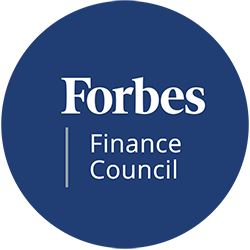Entrepreneurs and investors in privately held companies are seeing an unprecedented rush of Special Purpose Acquisition Companies (“SPAC”) deals. One can hardly open a business journal or access a business news website and avoid getting bombarded by information on yet another SPAC merger. Although SPACs have been around for almost 20 years, they hit an all-time high in 2020, raising over $83 billion and outpacing traditional IPOs. According to SPACInsider, the proceeds raised in 2020 by SPACs more than tripled compared to 2019, and we have yet to hear of any SPAC running out of time to find its merger candidate in the past twelve months. The urge to merge with a SPAC has just been too intense.

SPAC deals are generally fueled by a desire to access capital either concurrently with the SPAC deals’ closing or shortly thereafter. There is a plethora of advice on financial advisors’ websites about how to prepare a privately held company for a SPAC transaction. Much of that advice follows the same model that investment advisors, lawyers and accountants have been providing for years to companies seeking access to the capital market through an initial public offering (“IPO”). BGA has helped many companies navigate that model. However, based on our experience, we have found there is a lot more for a privately held company’s finance and accounting team to do to prepare for a SPAC than for an IPO.
For private companies interested in going public, a SPAC can offer a much quicker path to market than a traditional IPO. However, there are many onerous accounting and financial reporting requirements that can make the complexity of this process painful.
In this article we will review the traditional SPAC/IPO roadmap and explore the view that within each SPAC deal there is a merger transaction that requires equal attention and preparation.
What is a SPAC?
At a very high level, a SPAC is a “blank check” company that is formed with the specific purpose of acquiring a yet-to-be-identified business within a set timeframe using funds raised in (i) an IPO of its securities (generally a combination of equity securities and warrants) and (ii) private/public debt placement(s) that take effect upon the consummation of the acquisition transaction or shortly thereafter.
Depending on the SPAC terms, the acquisition transaction may result in a minority interest, control or 100% ownership of the acquisition target.
The principal appeal of this investment vehicle is a faster track to accessing the public capital market. Its main value to the initial investors in the SPAC is the upside from exercising the warrants that are issued as part of the IPO, combined with measured risks. Initial investors in a SPAC have the option to decline to participate in the business acquisition transaction and obtain a refund of their initial investment should they oppose the selection of the business to be acquired or disagree with the value of the acquisition transaction. Note that the proceeds from the IPO are maintained in escrow in a Trust Account until the acquisition transaction consummation. Also, depending on the terms of the SPAC, initial investments are generally freely tradable, while Sponsor Shares are typically locked up for an entire year after closing. All SPACs have a set life, usually between 18 to 24 months, to consummate an acquisition transaction. In addition, the New York Stock Exchange imposes a minimum limit of 80% of IPO proceeds to be invested in the business acquisition.
SPACs are organized by sponsors who initiate the registration of the SPAC’s securities prior to identifying their acquisition targets. Sponsors are responsible for:
- Establishing the SPAC’s board of directors
- Complying with Securities registration rules as well as Exchange regulations
- Structuring the terms of the SPAC
- Raising its initial capital
- Identifying, evaluating and structuring the acquisition of the target company/business
SPAC sponsors are generally rewarded through the grant and appreciation of Sponsor Shares and Sponsor Warrants where warrants become exercisable only upon the consummation of the acquisition transaction (also referred to as a de-SPAC).
SPAC sponsors are subject to pressure to meet their commitments to the initial investors while maximizing their return and conforming to all laws, rules and regulations. Ultimately, SPAC sponsors are motivated to seek and negotiate deals with companies that are prepared to operate as public companies with the following characteristics:
- Higher degree of closing certainty
- Sensible valuations
- Well-developed or mature growth strategies
- Management teams with a demonstrated track record
- Sustainable and predictable anticipated earnings
Positioning a Company for a SPAC Transaction
One of the principal challenges companies face preparing for a SPAC transaction is to proficiently deal with the due diligence process while also preparing to become a public company.
Selecting the right partner to guide operating companies through these two complex and arduous processes is vital. Specific preparation and reporting considerations for companies seeking a SPAC transaction include:
- Public Company Readiness: The private company will need to prepare itself for being a public company quickly in terms of accounting, financial reporting, human resources, etc.
- Due Diligence: The private company will need to collect, analyze and verify financial and non-financial information and documentation to identify and mitigate problems, errors, inconsistencies and threats while also bringing to light the stability, opportunities and strengths of the business. Such efforts are best demonstrated by having:
- Audited Financial statements that are PCAOB-compliant for at least two years.
- A Quality of Earnings report: A quality of earnings (“QofE”) report is a routine step in the due diligence process for private acquisitions. The availability of a QofE report in advance of a SPAC transaction broadens the private company’s appeal to SPACs seeking merger candidates, accelerates the transaction timeline, and improves the certainty of close. For a company with an interest in entertaining a SPAC transaction to position itself as an attractive target for a successful SPAC transaction and realize peak value to its existing shareholders, we recommend a disciplined financial analysis process that demonstrates its fundamental value and execution capabilities. We strongly believe that a robust analysis of the company’s revenues and profitability documented in a QofE report prepared by an experienced transaction team is essential to quickly credentialize the business with potential SPAC counter-parties.
- Stress-tested Financial Projections that are anchored to sustainable historical results, with clear and well-documented assumptions extending into at least three years.
- Business Valuation: Independent valuations of business interests, tangible assets, intellectual property, intangible assets, common and preferred stock and other securities, partnership interests, employee stock option plans (ESOPs), private debt instruments, options and warrants are essential to establishing reasonable transaction value expectations.
- Tax Structuring: Restructuring activities may be needed prior to a private company merging with a SPAC.
- Internal Controls: Sarbanes-Oxley Act regulations are specific and comprehensive regarding internal controls of public companies. Installing compliant internal control processes, improving present controls, or implementing the right automated controls infrastructure in advance of a SPAC transaction will save money and allow management to focus on what matters most when time is limited and stress levels are high.
Prepare to Go Public ASAP
Private companies that may be acquired though a SPAC transaction need to have a comprehensive plan in place to meet the requirements of an accelerated merger. They must be prepared to meet public company requirements within a dramatically shorter timeframe. There are also complex accounting and financial reporting/registration requirements that may vary depending on the life cycle of the SPAC.
Immediately upon closing, the previously private company is subject to public company reporting obligations. At this point, the company needs to have people, processes, and technology in place to support the reporting schedule and requirements of a public company. These include accounting and financial reporting, finance effectiveness, financial planning and analysis, tax matters, internal controls and internal audit, human resources and compensation, treasury, enterprise risk management, technology and cybersecurity.
Improve Your Negotiating Position
It’s essential to allow enough time to position your company for a SPAC transition. The less prepared a target company is the more leverage and negotiating power the SPAC sponsors have. The earlier a private company starts the planning process and the more prepared it is, the more advantageous the deal will be for its shareholders.
When a private company is well-positioned, it can pitch to multiple SPACs instead of waiting for a single SPAC to identify them as a target. Thus, its negotiating position is significantly improved.
Undergoing due diligence and preparing to operate as a public company simultaneously are the greatest challenges faced by management teams going through a SPAC transaction. It’s essential to allocate enough resources and time in advance to enable a SPAC target to maintain current operations and execute a SPAC transaction at the same time.
If you decide that going public through a SPAC is the right move for your company, it’s important to start planning right away to get the most beneficial outcome for your business.
This article originally appeared on 18 March 2021 at forbes.com

Forbes Finance Council Is An Invitation-Only Organization For Senior-Level Financial Services Executives And Leaders. Members are respected leaders and executives who are selected for the council based on the depth and diversity of experience in the financial services industry.
BlytheTeam® members have extensive experience advising companies throughout the SPAC merger process. BGA offers traditional pre-IPO advice for potential SPAC candidates, including elevating their capabilities to comply with accounting, financial reporting, securities filings, and exchange requirements. In addition, BGA offers a unique service offering that combines historical Quality of Earnings analysis with forward-looking Financial Modeling.
- Technology Construction Company – Financial statement uplift, 2018, 2019 & through 6/30/20 audit support, technical accounting, quarterly presentation, segment reporting & SOX preparedness
- Multinational Battery Technology Company – Financial statement uplift, 2018, 2019 & through 6/30/20 audit support, technical accounting, quarterly presentation, segment reporting & SOX preparedness
- Multinational Hybrid Automotive Company – Financial statement uplift, 2018, 2019 & through 6/30/20 audit support, technical accounting, quarterly presentation, segment reporting & SOX preparedness
- Aerospace Company (Rocket Manufacturer and Launch Services) – Financial statement uplift, 2019 and 2020 audit support, technical accounting, quarterly presentation, segment reporting, internal controls and technology and process implementations
- Aerospace Company No. 2 (Rocket Manufacturer Launch Services) – Financial statement uplift, 2019 and 2020 audit support, technical accounting, quarterly presentation, segment reporting, internal controls and technology and process implementations
- National EV Charging Company – Financial statement uplift, 2018, 2019 & through 6/30/20 audit support, technical accounting, quarterly presentation and segment reporting
- LIDAR Technology – Financial statement uplift, 2018, 2019 & through 6/30/20 audit support, technical accounting, quarterly presentation and segment reporting
Blythe Global Advisors is an accounting advisory firm with a difference. We have a proven track record of helping companies – from startups to brand-name enterprises, U.S.-based and international – fill the gap in accounting and financial expertise. Whether you need help with a simple financial statement or a complex business combination, we offer customizable, flexibly priced solutions that we deliver via our world-class service delivery process.
To discuss this important topic further or if you’re looking for general accounting advice, contact:
To learn more about Blythe Global Advisors, our solutions and BlytheTeam®, visit the Blythe Global Web site or call us at the location below that’s nearest you.
Irvine (HQ) 949-757-4180 Los Angeles 213-228-5002 San Diego 619-391-7385




